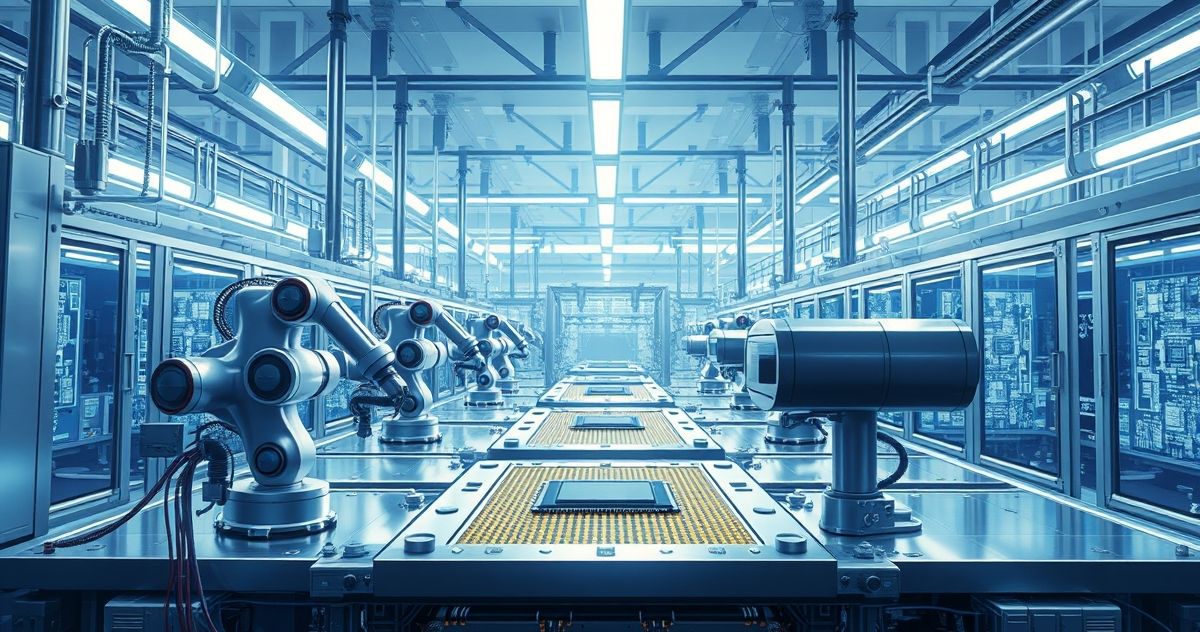
Breakthrough in Advanced Memory Technology
Samsung Electronics has successfully completed production readiness approval (PRA) for its cutting-edge 6th generation D1c DRAM chips, marking a significant milestone in the global memory semiconductor race. The approval, finalized on June 30th, represents Samsung's latest advancement in ultra-fine 10-nanometer manufacturing processes. The D1c technology represents the most advanced DRAM manufacturing process currently available, featuring circuit line widths of approximately 12-13 nanometers. This breakthrough positions Samsung to compete more aggressively in the high-bandwidth memory (HBM4) market, which is crucial for next-generation AI applications. Production readiness approval signifies that Samsung's internal quality standards have been met, clearing the way for full-scale commercial production of these advanced memory chips.Revolutionary D1c Technology Specifications
The D1c process represents the pinnacle of Samsung's DRAM technology evolution. DRAM generations are categorized by circuit line width, progressing through 1x, 1y, 1z, 1a, 1b, and now 1c designations. Each successive generation achieves greater miniaturization and improved performance characteristics. This ultra-fine process technology delivers significantly enhanced integration density and performance compared to previous generations. The D1c chips are specifically designed to serve as the foundation for HBM4 die production, which will power the most advanced AI computing systems. Samsung has already achieved industry-first development of HBM3E 12-layer products, targeting mass production in the first half of 2025. The D1c process technology will enable Samsung to maintain technological leadership in the transition to HBM4 products.AI-Driven Memory Market Expansion
The artificial intelligence revolution has created unprecedented demand for high-performance memory solutions, with HBM products experiencing explosive market growth. NVIDIA's next-generation AI chips require the most advanced memory technology available, making HBM4 a critical component for maintaining competitive advantage in AI processing. Currently, SK Hynix leads the HBM market, but Samsung's D1c process technology represents a significant challenge to this dominance. SK Hynix has been mass-producing HBM3E products and is accelerating HBM4 development efforts to maintain market position. Micron Technology is also investing heavily to enter the HBM market, creating a three-way competition among global memory leaders that will drive innovation and market expansion.NVIDIA Approval Critical for Success
Samsung's success in the HBM market depends heavily on securing supplier approval from NVIDIA, which dominates the AI chip market with overwhelming market share. NVIDIA's approval process has become the determining factor for HBM market positioning and revenue potential. Samsung targets completion of NVIDIA quality certification for HBM3E products during the first half of 2025. A positive signal emerged in March when NVIDIA CEO Jensen Huang signed approval on Samsung's HBM3E products during a public demonstration, indicating potential certification progress. Industry analysts expect Samsung to begin HBM supply to NVIDIA starting in the third quarter of 2025, which would represent a major breakthrough for Samsung's memory business.Semiconductor Industry Landscape Transformation
The D1c mass production approval positions Samsung to advance significantly in memory semiconductor technology competition. In the HBM4 market specifically, Samsung can now narrow the technology gap with SK Hynix while pursuing expanded market share opportunities. The semiconductor industry is accelerating technology development competition to address memory demand surge driven by the AI revolution. Samsung's D1c achievement represents a crucial turning point in this competitive landscape. Future HBM4 mass production timing and NVIDIA approval schedules will become key variables determining Samsung's memory business success. The company's ability to execute on these technological advantages will shape the global memory market structure for years to come. This development also demonstrates how AI technology advancement is driving unprecedented innovation in semiconductor manufacturing, pushing the boundaries of what was previously considered technically achievable.Original: https://trendy.storydot.kr/it/samsung-d1c-dram-mass-production-approval


0 Comments